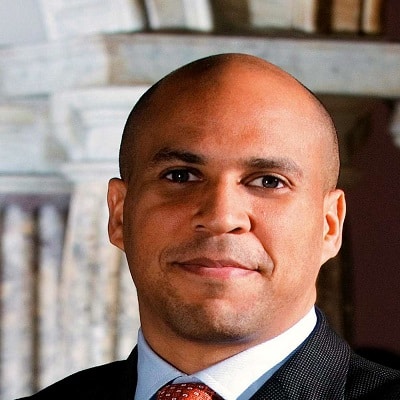 US President Barack Obama touched the subject of drug legalization, if only to dismiss it
US President Barack Obama touched the subject of drug legalization, if only to dismiss it
By Phillip Smith
Responding to a growing clamor from his Latin America colleagues at the Sixth Summit of the Americas in Cartagena, Colombia, this weekend, US President Barack Obama broached the subject of drug legalization, if only to dismiss it. But other hemispheric heads of state want this weekend’s summit to be the beginning of the discussion, not the end.
Pressures that have been building for a decade or more have only intensified in recent months, with Latin American leaders including Guatemalan President Otto Perez Molina, Colombian President Juan Manuel Santos, and even Mexican President Felipe Calderon calling for a frank and open discussion of alternatives to US-style war on drugs.
The calls come against a backdrop of decades of drug war in Colombia, where tens of thousands have been killed and hundreds of thousands displaced in a US-backed and -financed war on drugs that morphed into a counterinsurgency campaign after the 911 attacks more than a decade ago. The $7 billion or so the US has spent since implementing Plan Colombia under President Clinton has succeeded in reducing Colombian cocaine production, but only to see production increase in Peru and Bolivia, and only at a high cost in terms of human rights and rule of law in Colombia.
Similarly, the Mexican drug wars, which have left a toll of more than 50,000 dead in less than five years and revealed extensive and corrosive corruption, as well as human rights abuses, within Mexican law enforcement and the military, have in recent years, begun bleeding into Central America. The northern tier of Central American countries — Guatemala, Honduras, and El Salvador — now have some of the world highest murder rates, and leaders of three of those countries attended a meeting on the theme of alternatives to the drug war last month hosted by Guatemalan President Perez.
Those pressures led US officials, including inveterate drug warrior Vice-President Joe Biden, to make an historic concession in the past few weeks: Drug legalization and other drug law reforms are indeed a legitimate arena of discussion, the Obama administration grudgingly allowed in response.
The pressure continued even before the summit officially got underway Saturday. On Friday, Guatemalan President Perez Molina, told the BBC that current drug war policies were unworkable.
“We call for a responsible, serious dialogue in which we scientifically analyze what is happening with the war on
drugs,” the former general said.
Perez Molina elaborated in an interview with Agence-France Presse on Saturday.
“The war we have waged over the past 40 years has not yielded results. It’s a war which, to speak frankly, we are losing,” he said. “Meanwhile, the black market continues to exist and dollars and weapons continue to flow in from the United States. The way we are fighting this war, we cannot win,” he added.
Perez Molina downplayed Obama’s dismissal of legalization, noting that he “will not innovate” while facing reelection,” but adding that there is “growing awareness among (US) officials, which they have not expressed but that we know they have discussed in think tanks, non-governmental organizations, academic circles, that it is necessary to seek other alternatives” to the war on drugs. We are beginning to see that Washington is ready to begin a dialogue, although not on decriminalization of drugs,” Perez said.
Also on Saturday, in remarks reported by CNN, Colombian President Juan Manuel Santos added to the pressure, saying that continuing current prohibitionist policies was like riding a “stationary bike”: working hard, but making little forward progress.
“I think the time has come to simply analyze if what we are doing is the best we could be doing, or if we can find an alternative that would be more effective and less costly to society. One extreme can be to put all users in prison; on the other extreme, legalization. In the middle there may be more practical policies, such as decriminalizing consumption but putting all the efforts into interdiction,” he said.
“This is a topic of extreme political sensitivity,” Santos added.
On Saturday, in remarks reported by USA Today, President Obama responded at some length, first in a meeting with business leaders that also included Brazilian President Vilma Rousseff and Colombian President Santos, and later at the opening session of the summit.
“I think it is entirely legitimate to have a conversation about whether the laws in place are doing more harm than good in certain places,” Obama said at the meeting of business leaders. “I personally, and my administration’s position is, that legalization is not the answer, that in fact if you think about how it would end up operating, the capacity of a large-scale drug trade to dominate certain countries, if they were allowed to operate legally without any constraint could be just as corrupting, if not more corrupting than the status quo,” he said.
Obama elaborated at the opening session. “Unfortunately, the drug trade is integrated, and we can’t look at the issue of supply in Latin America without also looking at the issue of demand in the United States,” Obama said. “I think the American people understand that the toll of narco-trafficking on the societies of Central America, Caribbean, and parts of South America are brutal, and undermining the capacity of those countries to protect their citizens, and eroding institutions and corrupting institutions in ways that are ultimately bad for everybody,” he said.
“So this is part of the reason why we’ve invested… about $30 billion in prevention programs, drug treatment programs looking at the drug issue not just from a law enforcement and interdiction issue, but also from a public health perspective. This is why we’ve worked in unprecedented fashion in cooperation with countries like Mexico on not just drugs coming north, but also guns and cash going south.”
“This is one of the reasons why we have continued to invest in programs like Plan Colombia, but also now are working with Colombia, given their best practices around issues of citizen security, to have not just the United States but Colombia provide technical assistance and training to countries in Central America and the Caribbean in finding ways that they can duplicate some of the success that we’ve seen in Colombia. So we’re mindful of our responsibilities on this issue.”
While Obama reiterated that legalization is a legitimate topic of debate, he also reiterated that “the United States will not be going in this direction.” (See the link above for the full transcript. The video is below.)
Instead, it appears inexorably wedded to doing more of the same old same old. Obama announced at that summit that the way the US would address the concerns raised by the Latin American leaders would be to throw more money at them. He announced an increase to more than $130 million of funding designed to provide assistance to regional police and military forces to tackle the drug traffickers the Central American gangs that are increasingly allied with them.
But as the summit ended Sunday afternoon, President Obama seemed to take pains to indicate that his administration is open to further discussions on the theme.
“I think it is wholly appropriate to address this issue,” he said in response to a question at the final press conference. “The smaller Central American and Caribbean countries are feeling overwhelmed, and there is the violence in Mexico. It wouldn’t make sense not to examine what works and what doesn’t and to constantly try to ask ourselves if there is something we can do to prevent violence, to weaken these drug traffickers, to make sure they’re not peddling this stuff to our kids and perpetrating violence in the region. I’m not somebody who believes legalization is a path toward solving this problem,” he underlined, “but there are additional steps we can take to be more creative and ways we can combine law enforcement and interdiction approaches with the public health approach that I think is important back home. I’m looking forward to continuing to have that conversation.”
“This is one of many issues that some countries want to put on the table,” said President Santos, seeming to scold the press for placing such an emphasis on the drug issue. “This was one of the issues we discussed. We heard positions from the US and other countries; they were all laid out on the table, and this is a positive step.”
The Cartagena summit is now history. The drug war rolls on, but the US is now on notice from its neighbors that the drug war status quo is not tolerable, and the US has indicated that it is open to further exploration of the issue. The Obama administration has not taken the great leap of embracing drug legalization, but it has now gone further than any previous US administration is admitting there may be alternatives to perpetual drug war.
Article From StoptheDrugWar.org — Creative Commons Licensing



